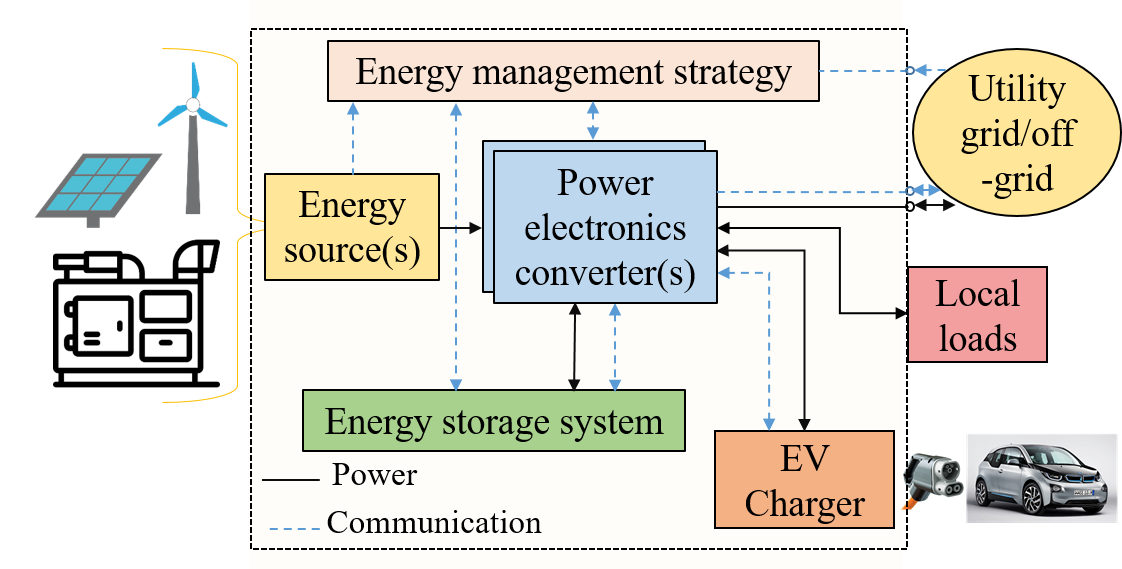A Comprehensive Review on Off-Grid and Hybrid Charging Systems for Electric Vehicles
Authors: Gautam Rituraj, Gautham Ram Chandra Mouli and Pavol Bauer
Extended Abstract:
In recent years, the research interest in off-grid (standalone mode) and hybrid (capable of both standalone and grid-connected modes) charging systems for electric vehicles (EVs) has increased. The main reason is to provide a seamless charging infrastructure in urban and rural areas where the electrical grid is unreliable or unavailable so that EV adoption can be increased worldwide. In this regard, this article reviews the state-of-the-art architectures of the off-grid and hybrid charging systems for EVs. It also investigates their different subsystems, such as single or multiple energy sources, power electronics converters (PECs), energy storage systems (ESS), and energy management strategies (EMS), to find the current status and technology trends. Here, ESS are intensively analyzed regarding battery technology, rated power and energy, and the EMS strategies in terms of EMS algorithms used and the control objective. Whereas renewable energy sources are investigated in terms of their type and rated power, PECs are discussed in terms of isolation, topology, and AC or DC interconnection bus. These subsystems should be optimally integrated and operated to achieve low-cost and efficient EV charging. Furthermore, EV charging connectors, their power level, and standards for all kinds of EVs (ranging from one-wheeler to four-wheelers) are reviewed, and suggestions are discussed related to the non-standardization of charging plugs. Finally, the conclusions show the continuous efforts of the researchers in improving the systems in various aspects, such as cost reduction, performance improvement, longevity, reduced emissions, system size minimization, and efficient operation, and highlight challenges for both charging systems.


